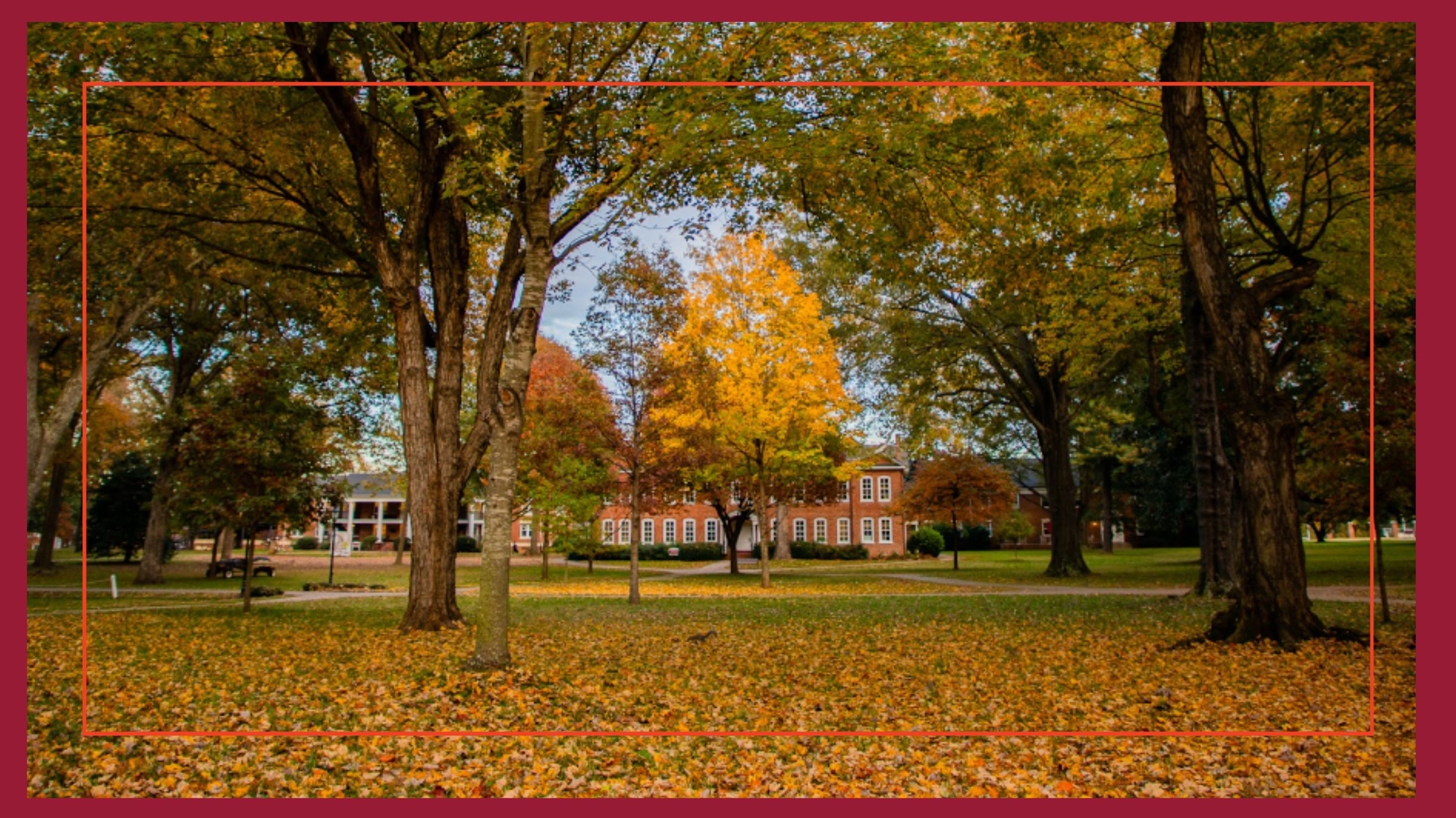
These days, students and professors drift ethereally among the lush green trees of Guilford’s campus, a sight that will only grow more glorious in the coming weeks when those leaves turn into vibrant hues of crimson and butterscotch before swirling soulfully to the ground. David Petree’s job is to make that postcard scene go away.

Caption: Every year, Guilford turns 18 tons of leaves into nutritional compost for the College’s farm and landscaping.
And while Guilford’s Assistant Director of Facilities occasionally gets an earful from students for doing just that, he takes solace in knowing that even while he’s sucking and shredding, he’s honoring the College’s commitment to responsible stewardship.
“There’s a greater good going on,” says David. “You may not see it, but behind the scenes we’re doing a lot of good things in terms of all the composting and recycling we’re doing — not just for the College, but also the community around Guilford and Greensboro.”
And so every day from November through December, Guilford’s three groundskeepers tow an aging custom-made vacuum, about the size of a small Dumpster, behind a 1999 Chevrolet truck for as many as 50 hours a week. They hoover and blow millions of leaves from Guilford’s grassy quad, red-brick pavers and parking lots — every nook and cranny of an otherwise quiet campus —before taking their haul into the woods where those leaves begin a new journey as food for the Guilford Farm.
But we’re getting ahead of ourselves. There’s an art to gathering nearly 18 tons of fallen oak, hickory, elm, and maple leaves. David's crew spends the first two weeks of “leaf-dropping season” (as David prefers to call autumn) mulching Guilford’s initial thin carpet of leaves, mowing much-needed nutrients back into the campus’ soil. Eventually the leaf falling intensifies to the point where mulching the thick layer of leaves would smother Guilford’s grass. That’s when the crew switches to vacuuming. At the end of every day, workers haul their bounty to the Guilford Woods. Mother Nature plays the lead role in decomposing the leaves, but David takes a backhoe to the piles, to let in much-needed oxygen and moisture that speeds up the leaves’ decomposition.
All the while, Guilford students, faculty and staff show up to the cafeteria playing unwitting roles in the college’s commitment to sustainability.
The cafeteria produces nearly 10 tons of food waste each year that would otherwise be headed for a landfill. As much food waste, which contributes to greenhouse gas emissions, as Guilford collects every year, Guilford Farm Manager Nick Mangili says the farm could accommodate even more if it had the equipment in place to handle it. Nick and David would love to see the College invest in a larger collection system so Guilford could work with surrounding communities like Friends Homes and nearby restaurants to collect their food waste.The food is processed through a pulper in the cafeteria kitchen and stored in cans waiting to be delivered to the farm. The mix is layered in with sawdust and decomposing leaves gathered from previous seasons — food waste lasagna, Nick lovingly calls it —in large bins the size of hot tubs.That food waste — mostly rice and pasta — is mixed with other compostable materials to provide a boost to the soil at the College’s 20-acre farm of which about 2.5 acres are dedicated to the garden.
The blend bakes for three days at a temperature of 131 degrees, an ideal temperature for jump starting the decomposition process. After three days, augers churn the compost to lower the temperature to 121 degrees for the next two weeks.
Nick says the benefit of composting is obvious: Nutrients such as nitrogen, phosphorus, potassium, sulfur and some micronutrients are cycled and applied to plants to grow more food, rather than decomposing in a landfill. There's an added benefit: The mulch helps out financially given the cost of fertilizer, like everything else, has spiked over the past year.
The roots of this year’s vegetables that will soon be gracing dishes at Founders Hall are being enriched from compost created from Guilford leaves collected in the fall of 2019. Nick says the College can and should think bigger. “It brings into question how we often think of sustainability in a narrow context. We could go deeper and consider the entire life cycle of a product or resource and celebrate its value at each stage,” he says.
“There’s so much potential to reuse, recycle in North Carolina. Guilford can be a big agent of change in leading the way.”

